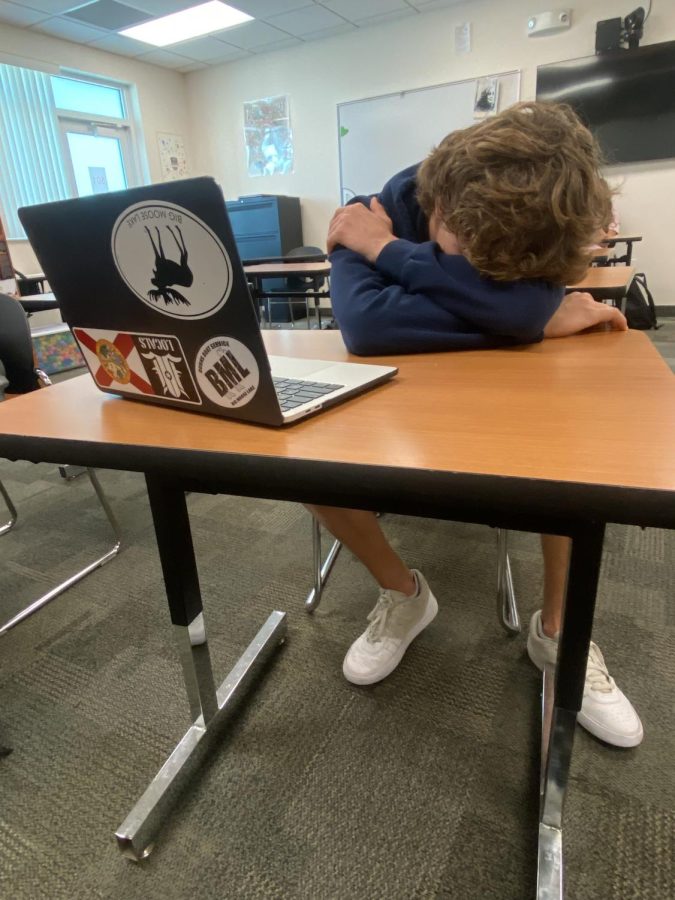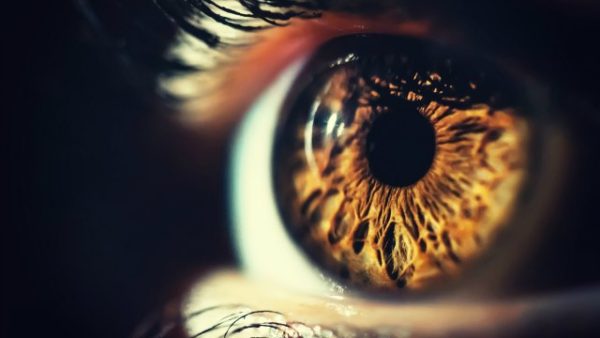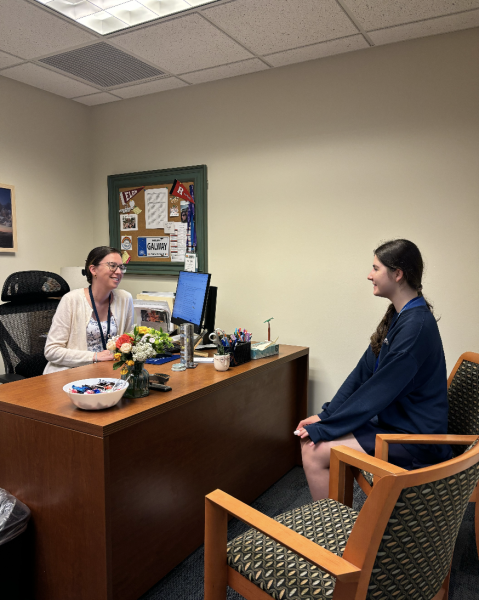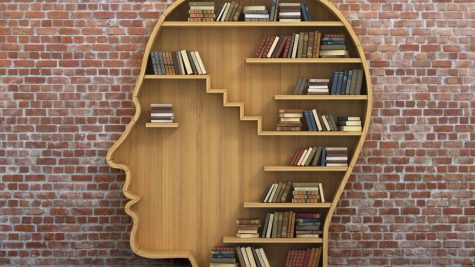Do We Need Eight Hours of Sleep Each Night? Research Shows Maybe Not
Some students unintentionally doze off during class. Getting the right amount of sleep each night is crucial to alertness during school and can even help you learn information faster.
Sleep is an important part of a high school student’s life. The busy day of a teenager leaves little time to rest during the school day. We all hear it so often: “At least eight hours of sleep leads to a productive day.” But how much truth is there in this “eight hours of sleep” quota?
In an article titled The Rule That Everyone Needs Eight Hours of Sleep is a Myth, published by QZ.com, five experts were asked if everyone needs eight hours of sleep per day. Interestingly, all five experts answered no.
Neuroscientist Chelsie Rohrscheib explains how sleep is essential to one’s health and lifespan, as sleep achieves many critical brain and body maintenance functions that cannot be performed while we are awake. Nonetheless, she argues the exact length of time it takes to accomplish these sleep functions is highly dictated by an individual’s genes.
“Some individuals, short sleepers, only need seven hours while others, long sleepers, will need nine,” said Rohrscheib. “Contrary to popular belief, it’s extremely rare for a person to require less than six hours of sleep per night, and those who make this claim about themselves are almost always chronically sleep deprived.”
The exception to this rule is individuals with a genetic variant that allows the brain to function more efficiently on less than six hours of sleep.
“This (variant) is extremely rare and very few people actually have this gene,” noted Rohrscheib. “So it’s best to allow your brain to dictate the amount of sleep it needs instead of believing you can get by on less than the average seven to nine hours.”
Sleep expert Crystal Grant shares how research has shown that the amount of sleep needed to function at your best varies between individuals. Most adults between the ages of 18-64 need seven to nine hours of sleep per night. She points to overall mood and health as one way to determine how much sleep you need.
“If you are feeling sleepy during the day or need an extra caffeine boost, you may need to increase the amount of sleep you are getting,” stated Grant.
Sleep expert Gorica Micic describes how studies show that adequate sleep is essential for our overall health and well-being. However, she presents a quality argument that there are large individual differences in how much sleep each person needs. One factor that Micic explains is similar to what Grant shared.
“The best indicator of whether you’re getting enough sleep is how you feel during the day,” remarked Micic. “If you feel sleepy, then you may need more sleep. Our sleep need also declines with age, so newborn infants may need between 12 and 18 hours of sleep whereas older adults may only need six or seven hours.”
Psychologist Hailey Meaklim credits genetics, age, medical conditions, and environmental and behavioral factors as the determinants of how much sleep you need.
“Certain people function well on less than six hours, and can actually experience insomnia when aiming for eight hours every night,” conveyed Meaklim. “However, short sleepers are rare and current guidelines recommend adults get at least seven hours per night regularly to prevent health problems, such as heart disease or depression.”
Finally, psychologist Stephanie Centofanti discusses how sleep need varies greatly between individuals.
“It’s important to know that sleep need changes throughout life; children and teens need much more sleep than adults, and as we reach older adulthood we may need slightly less sleep,” said Centofanti. “The amount of sleep we need to be functioning at our best can also change depending on prior sleep history. For example, a period of sleep deprivation, illness, or high stress may mean you need more sleep than usual for a little while.”
Interestingly, most students see a correlation between the amount of sleep and production in school. Junior Christian Balistreri believes he gets an adequate amount of sleep each night.
“I would say on average seven to seven and a half hours of sleep per night. I try to get to bed by 10:45 p.m. and then wake by 6:30 a.m., but it usually takes me some time to fall asleep though,” said Balistreri.
“I would say that when I get less sleep, I’m unable to fully pay attention and work my hardest. But when I get my usual amount of sleep, my focus level is a lot better,” added Balistreri.
Similarly to Balistreri, freshman Julian Luiz also feels that he gets a sufficient amount of sleep each night.
“Normally I get around eight to nine hours of sleep per night. I usually get to bed around 10:30 p.m. and then wake up around 7 a.m.,” said Luiz.
“When I get more sleep, I would say I’m definitely more locked in on my work. I also find that I can pay better attention to my classes, whereas when I get less sleep, I lose focus more easily,” added Luiz.
Even though the “eight hours of sleep” rule may not necessarily be true, it is still important for people, especially high school students, to make sure they are getting enough sleep each night to be able to properly function the next day.

Joey is a senior and is an Edtior-in-Chief of The Pharcyde. He has been a part of the paper for three years. He is a member of three varsity sports teams:...















